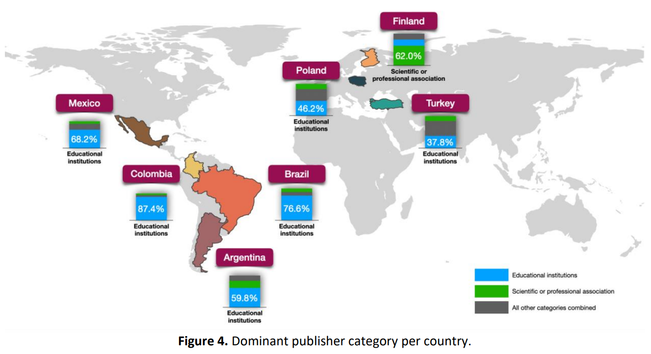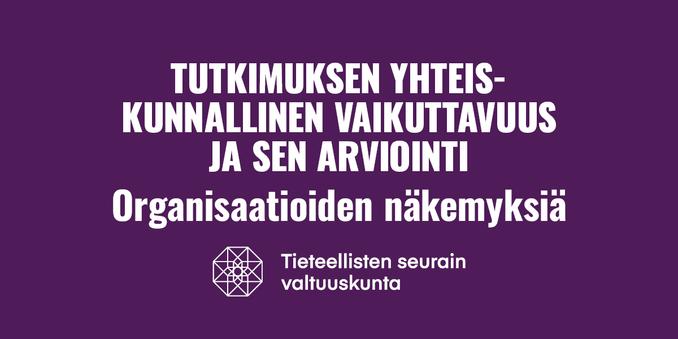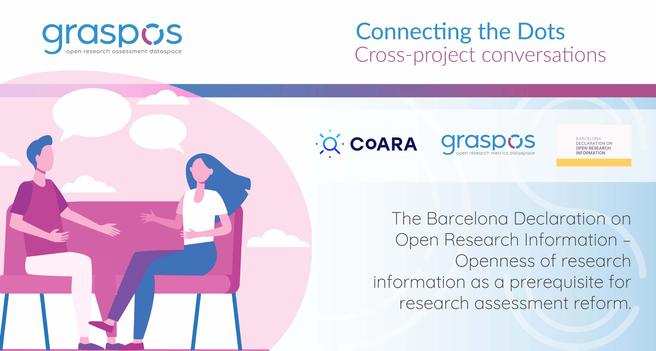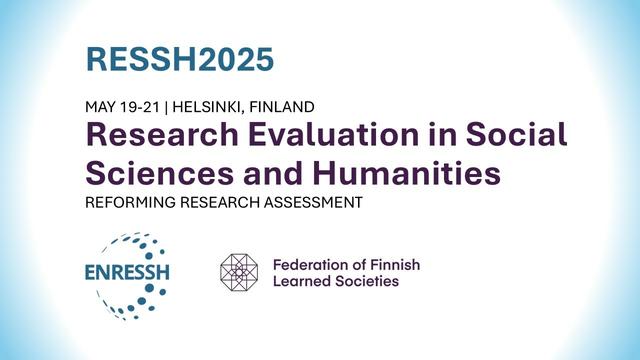RESSH2025 Conference
RESSH2025 conference of the international association ENRESSH (European Network for Research Evaluation in the SSH) is organized 19-21 May, 2025, in Helsinki, Finland. It brings together specialists on various topics of research evaluation and research policy with a special focus on the social sciences, humanities and the arts (SSH). Dates: 19-21 May 2025 Submissions: Closed Acceptance confirmation: authors have been informed 17 March Registration: is now open here Registration fees: PhD students 75 euros ENRESSH members 100 euros Non-ENRESSH members 125 euros Conference venue: House of Science and Letters (Tieteiden talo), Kirkkokatu 6, 00170 Helsinki Local organizer: Federation of Finnish Learned Societies Contact: janne.polonen@tsv.fi PROGRAMME Full programme with 46 oral presentations and 5 posters will be published here later. Below is an outline of the programme schedule. Monday 19 May Keynote and sessions 14:00-17:30 Dinner 18:30-20:00 Tuesday 20 May Sessions 09:30-13:00 Lunch 13:00-14:00 Sessions 13:00-17:15 Wednesday 21 May Sessions 09:30-13:10 Lunch 13:10-14:00 KEYNOTE Keynote-speaker: Toma Tasovac is the Director of the Belgrade Center for Digital Humanities (BCDH) and Director Emeritus of the pan-European Digital Research Infrastructure for the Arts and Humanities (DARIAH). With an academic background in Comparative Literature and degrees from Harvard, Princeton and Trinity College Dublin, Toma's areas of scholarly expertise include historical lexicography and the development of language resources, data modeling, digital editions and research infrastructures. He is the co-creator of TEI Lex-0: a baseline encoding format for lexicographic data, which received the 2020 Rahtz Prize for TEI Ingenuity from the TEI Consortium. He has played leading roles in numerous digital humanities projects funded by national and international agencies, including Erasmus+, Horizon 2020, Horizon Europe and the National Endowment for the Humanities. Keynote title: Reshaping Research Assessment: What Research Infrastructures Have Got to Do With It? In recent years, funders, institutions, and scholarly communities have intensified efforts to rethink ways of measuring research quality. Traditional metrics such as citation counts or journal impact factors have often fallen short in capturing the diverse, collaborative, and evolving nature of scholarship, while the long-standing focus on published final results has tended to overlook crucial scholarly activities such as data curation, software development, methodological innovation, and training. In this keynote, I will explore the role that research infrastructures can play in reshaping research assessment practices by helping us shift the focus from rigid, product-oriented models to more holistic approaches that recognize knowledge creation as a dynamic, multi-step process. CALL FOR SUBMISSIONS The evolving landscape of research assessment is among the twenty key actions in the European Research Area 2020–2024 agenda. This priority has taken shape through the Towards a Reform of the Research Assessment System—Scoping Report, issued in 2021 by the European Commission, outlining objectives and principles for a renewed evaluation approach. In line with this, the European Council’s Conclusions on the Assessment of Research and the Implementation of Open Science of June 2022 stress the need to address limitations in current systems to better support the diversity of research outputs, foster interdisciplinary work and promote multilingualism, moving towards a more qualitative and inclusive evaluation model. The Agreement on Reforming Research Assessment (ARRA) and the Coalition for Advancing Research Assessment (CoARA) provide a common direction for these efforts. This shift calls for rethinking frameworks to better recognize the diverse contributions of researchers and institutions, aligning assessments with the evolving needs of science. Research assessment reform should incorporate a range of approaches, including epistemic, ethical, and legal considerations, as well as factors such as inclusiveness, open science, sustainability, and societal impact. This transformation involves not only revising measurement practices but also broadening our understanding of valuable and impactful research. Central to this effort is the role of infrastructure, which must support fair and transparent assessments aligned with open science and diverse research outputs. ENRESSH/EvalHum and its RESSH conference has been at the forefront of rethinking and improving research assessments for more than a decade by acting as a platform of scientific and policy exchange and empirical inquiry. The RESSH25 conference goes therefore back to its roots and links explicitly to the growing research assessment reform movement. We welcome abstracts for presentations and posters that explore these themes from theoretical, empirical, and practical perspectives, addressing challenges and proposing actionable solutions for the future of research assessment. Submissions related to CoARA activities are particularly welcome. We encourage diverse perspectives and approaches that critically engage with the evolving landscape of research assessment and contribute to meaningful progress in this area. Contributions may focus on case studies, policy analyses, empirical studies, theoretical frameworks, and methodological innovations. The maturity of the contributions can range from presentations of work-in-progress to reports to papers. Abstracts will be made available prior to the conference. TOPICS Topics might include, but are not limited to, the following: Diversity in research contributions Evaluation of interdisciplinary research Recognition of non-traditional career paths Societal impact and community engagement Qualitative approaches and peer review Peer review standards and practices Integration of narrative CVs Balancing qualitative and quantitative assessments Beyond traditional metrics Alternatives to journal impact factors and h-index Development of holistic evaluation models Creation of inclusive and responsible metrics Rethinking institutional rankings Impact of rankings on researcher evaluation Institutional autonomy in setting evaluation criteria SUBMISSIONS There are two types of contributions to the conference: PAPER Paper presentations allow for 20 minutes of presentation, followed by 10 minutes of discussions. Extended abstract containing: A clear and descriptive title Names and affiliations of all authors Keywords (5) relevant to the research Main body References (if applicable) The extended abstract must be between 600 and 1,200 words, excluding references. POSTER Poster presentations will be held during one or more dedicated poster sessions. Short abstracts containing: A clear and descriptive title Names and affiliations of all authors Keywords (3-5) relevant to the research Main body The abstract must not exceed 400 words. SCIENTIFIC COMMITTEE Ginevra Peruginelli (Chair), Institute of Legal Informatics and Judicial Systems - National Research Council, Italy Janne Pölönen (Local Organising Chair), Federation of Finnish Learned Societies, Finland Alesia Zuccala, University of Copenhagen, Denmark Alex Rushforth, University of Leiden, the Netherlands André Brasil, University of Leiden, the Netherlands Emanuel Kulczycki, Adam Mickiewicz University, Poznań, Poland Erzsébet Tóth-Czifra, CoARA, European Science Foundation, France. Fernanda Beigel, Universidad Nacional de Cuy, Argentina Francesca Di Donato, Institute of Computational Linguistics "A. Zampolli", National Research Council, Italy Gemma Derrik, University of Bristo, United Kingdom Geoffrey Williams, Professor emeritus, Université de Bretagne Sud, France Gunnar Sivertsen, Nordic Institute for Studies in Innovation, Research and Education, Norway Jack Spaapen, ScienceWorks, the Netherlands Jelena Brankovic, Robert K. Merton Center for Science Studies, Humboldt-Universität zu Berlin, Germany Jon Holm, Research Council of Norway, Norway Julia Olmos Peñuela, University of Valencia, Spain Kamila Lewandowska, University of Warsaw, Poland Lai Ma, University College Dublin, Ireland Laura Rovelli, CLASCO/FOLEC, Argentina Lucia Cespedes, Erudit, Canada Lynne Bowker, Université Laval, Canada Michael Ochsner, FORS, Lausanne, Switzerland; Center for Reproducible Science, University of Zurich, Switzerland Mikael Laakso, Tampere University, Finland Mira Söderman, Federation of Finnish Learned Societies, Finland Nataša Jermen, The Miroslav Krleza Institute of Lexicography, Croatia Nicolas Robinson-Garcia, University of Granada, Spain Reetta Muhonen, Tampere University, Finland Sybille Hinze, Berlin University Alliance, Germany Tim C.E. Engels, University of Antwerp, Belgium Zehra Taskin, Hacettepe University, Turkey PRROGRAMME COMMITTEE Ginevra Peruginelli (Chair), Institute of Legal Informatics and Judicial Systems - National Research Council, Italy Erzsébet Tóth-Czifra, CoARA, European Science Foundation, France. Janne Pölönen, Federation of Finnish Learned Societies, Finland Michael Ochsner, FORS, Lausanne, Switzerland; Center for Reproducible Science, University of Zurich, Switzerland Mira Söderman, Federation of Finnish Learned Societies, Finland PREVIOUS CONFERENCES RESSH2024 Galway, Ireland RESSH2020 Poznan, Poland (cancelled due to COVID-19) RESSH2019 Valencia, Spain RESSH2017 Antwerp, Belgium RESSH2015 Rennes, France




